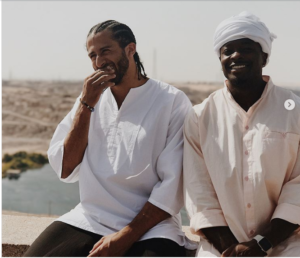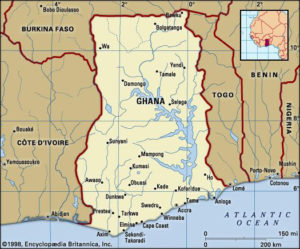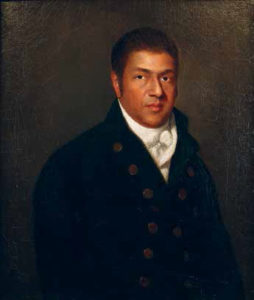
Game Day for SWAC


https://www.fema.gov/media-library/assets/videos/131034
If you have great photos of Hurricane Harvey, share them with the Houston Sun and we will publish them and give you photo credit.
Send photos and include the title, place, and a description of what is happening. Send to: sunphotos@houstonsun.com. Include your name, address, and phone number.
The link below is for Houston Sun’s readers’ use. If you have been impacted by Hurricane Harvey, this link should be beneficial.
https://www.fema.gov/apply-assistance
Since 1983, The Houston Sun brings you new and information that you can use and trust.
 Responding to the devastation of the epic and historic Hurricane Harvey, the Houston League of BUsiness and Professional Women, Inc in collaboration with The Houston Sun has established a three tier HLBPW Harvey Care Initiative. To that end, the Houston League during the conference call explored the following:
Responding to the devastation of the epic and historic Hurricane Harvey, the Houston League of BUsiness and Professional Women, Inc in collaboration with The Houston Sun has established a three tier HLBPW Harvey Care Initiative. To that end, the Houston League during the conference call explored the following:
It was decided to implement the above three initiatives and call upon all members, friends, organizations, the general public, and partners to support those impacted by Hurricane Harvey.
a. Collect, organize, label, bag your supplies, books, toys, games, and deliver them to the Sun or prepared to caravan to the George R. Brown or an official shelter. Organize Clothing items by size, gender; items for children, and babies. Place items in separate labeled bags and deliver to the Houston Sun, 1520 Isabella St. 77004 beginning Wednesday-Friday, from 4-6 PM, providing it is safe for you to travel. Used clothing should be gently used and clean.
b. Participate in the Houston League’s Care Initiative by emailing and posting to your social media Send donors to:hlbpwharveycare@gmail.com to make contributions using PayPal. Those contributions will be distributed as follows: First, Impacted African American Small Business; secondly, Texas Southern University Beta PSI and thirdly, Family with Children. “All funds are tax deductible and will go to businesses and families that have been vetted by the Houston League of BPW,” said Dorris Ellis, Publisher Editor of the Houston Sun and President of the Houston League of Business and Professional Women, Inc.
About the Houston League
The Houston League was organized in 1964 by Mrs. Luellia W. Harrsion as an affiliate of the National Association of Negro Business and Professional Women’s Clubs, Inc. Its purpose is to:
To seek and create job opportunities.



Maat Andrews
The Houston Sun
Colin Kaepernick took to social media this Fourth of July announcing his visits to different African locations. Kaepernick’s hajj places him in great and interesting company. He is not alone.
From within the seared hearts of the descendants of African-American slaves comes a burning desire to return to a time and most definitely a place of idyllic uninterrupted, uncolonized independence and autonomy. Some choose to make the journey over water and land to a generalized state of Africa, a sojourn made popular when then-named Malcolm X went on a trek through several countries on the continent of Africa, changed his name yet again to reflect the spiritual transformations he experienced.
Seen now through the eyes of former San Francisco 49er quarterback and now free agent Colin Kaepernick, this journey, also popularized by the young Jackson-Five brothers in the 1970’s, during the height of their fame, did not begin with this first mass unfettered economic and intellectual generation with enough funds and knowledge to go actually go there in large numbers.
The yearning perhaps never died, as reflected in the re-occurring Back-to-Africa movements, the most recent large one energized by Marcus Garvey’s Twentieth Century UNIA movement, which had nation-wide grassroots participation. The movement spurred at least 12 units in Louisiana even.
In the 1800’s the first Back-to-Africa movement (of historical note) was spearheaded by Paul Cuffee, who repatriated about 60 persons to Sierra Leone. Cuffee once protested to President James Madison when his ship was caught in an international conflict between the United States and England. Cuffee’s ship had recently returned from Sierra Leone and was suspected of violating American embargoes against goods and supplies from the British, then colonizer of that West African country.
During the 20th Century, many waves of African-Americans went to Africa, mostly countries on the West coast, in search of meaning and spiritual solace. Entire communities in various countries, especially Ghana, greet the more recent race-worn souls, such as Kaepernick, whose quests lead them to these locations.
One influential thinker in African-American ideas and philosophies, W. E.B. Dubois, Souls of Black Folks, expatriated to Ghana and died, auspiciously, at 103 years on the night before the Martin Luther King-led 1963 March on Washington, during which King delivered the “I Have a Dream” Speech.
Even though Dubois did not found the Ghanaian community of African-American intellectuals, who languish in equatorial heat, his presence inspired so many to relocate to that former empire (6th-12th Century CE). Most black intellectuals offer Dubois praise for his influence in their lives and their journeys
Dubois fought maltreatment of blacks, offered methods of black ascension, collected and compiled data, – laying the foundation for establishing the field of social work and astronomically erected lists of other life accomplishments. Yet, the wear and tear on the human psyche that the American racial set of beliefs, practices,
and expectations extracts an exceptional toll on the black mind through eternal vigilance, as it did on Dubois, as it seems to do on Kaepernick.
The vigilance against harmful and not-so-harmful racially molded practices of the United States brand gets heavy sometimes and wears the brightness out of young eyes, looking for acceptance. That exceptional racial brand sparks a certain alertness to manners, innuendos, movements of personnel, gerrymandered friendship circles, and close readings for what is not included in a story or book.
As in the case of Kaepernick’s journey, many travelers outside their native-born United States often comment that when they were in other countries, they felt lighter and freer, that they did not feel any racial prejudice. When traveling to other countries, especially African countries, there is such a relief. Not that racial prejudice ends at the United States borders, but it is less recognizable, less systemic, and in many cases less intense than the US brand.
Kaepernick, according to his tweet, went to Ghana for self-discovery. This Sankofa, return home, is the kind of spiritual quest so many young African Americans went on during different decades of the 20th and early 21st centuries. It is no surprise that these young people feel an awakening that could be part of a larger spiritual change.
As if an epiphany opened his third eye of awareness and his Christian compassion started flowing, Kaepernick donated his famous sneaker collection to San Francisco’s homeless and his custom-made suits to a program that helps people find jobs after being released from jail. Also, he helped raise funds for a plane load of blood and water for Somalia’s struggling population, according to an article by Nate Peterson on CBSSPORTS.com.
From knee-bowing during the playing of the “Star-Spangled Banner” to choosing to love as he stated in his Fourth of July declaration some people in local villages and African locations, the most remote from the well springs of attention and least powerful people because they matter in the human narrative also. These are the kinds of choices and sacrifices that leaders make, that heroes make.
Kaepernick may not be back on anyone’s football team this upcoming season, but he has chosen a life path that Christ would give a nod, Frederick Douglass would be proud, and one of which Mother Theresa would be inspired.
By Maat Andrews
The Houston Sun
Senate Bill 4, a bill that has stirred much controversy since its introduction by Texas Governor Gregg Abbot in 2016, was signed into law in May of this year and has sparked protests from many different communities across this state and has awakened the dormant heart strings of the millennial generation.
In an ACLU organized protest headed for San Antonio, a group of over 100 activists and budding activists left Houston in the wee hours of Monday morning to take part in a state-wide resistance to SB4 that that will be put in force September of this year.
The bill limits sanctuary cities, of which Houston is one, from protecting law-abiding residents who are continuing their dreams and working as productive members of the US recovering economy. This bill permits local law enforcement to question citizenship status of residents with whom they come in contact.
Part of the bill provides for the punishment of officers who are reluctant to step over what formerly were federal lines of authority and require resident status information from local Houstonians.
As is the case in most situations in which the opposition overplays its hand, the bill has sparked activism that is shaping itself into long-range, stable forces in the electorate, especially in the millennial generation.
These buses that left Houston for Monday’s protest carried an unusual number of young people, eager to express their voices agai

not an unjust provision. These newly-formed activists are members of different groups that meet regularly and help them shape their responses to challenges of their views, their hopes, their futures.
So, the recently ignited fire is not set to burn quickly and die soon. These organizations are part of their daily or weekly lives and could be the building ground for political support of candidates championing their agendas.
One of the young activists is Ivette Torres, an advancing junior at Northside High School. About her passion for equal and fair treatment, the Northsider stated, “I was motivated to go to San Antonio because some people are afraid to stand up, to leave their homes, so it was my duty to step up and speak out for them.”
During this trek for a repeal of SB 4, Torres noted that about half of the bus-riders were young people, about her age, and they were discovering how to effect change in their world. They were learning to get what they want through the political process.
“I learned that it is a lot easier to be involved, that there is support for anyone, especially young people who want to get things done,” Torres said.
“These families [the ones affected by SB 4] are the ones that are the most motivated and the most filled with fear also,” she added.
“This event was organized by the ACLU. I knew when I first saw their presentation that I was going to be involved in these things and would participate in the future,” Torres said.
|